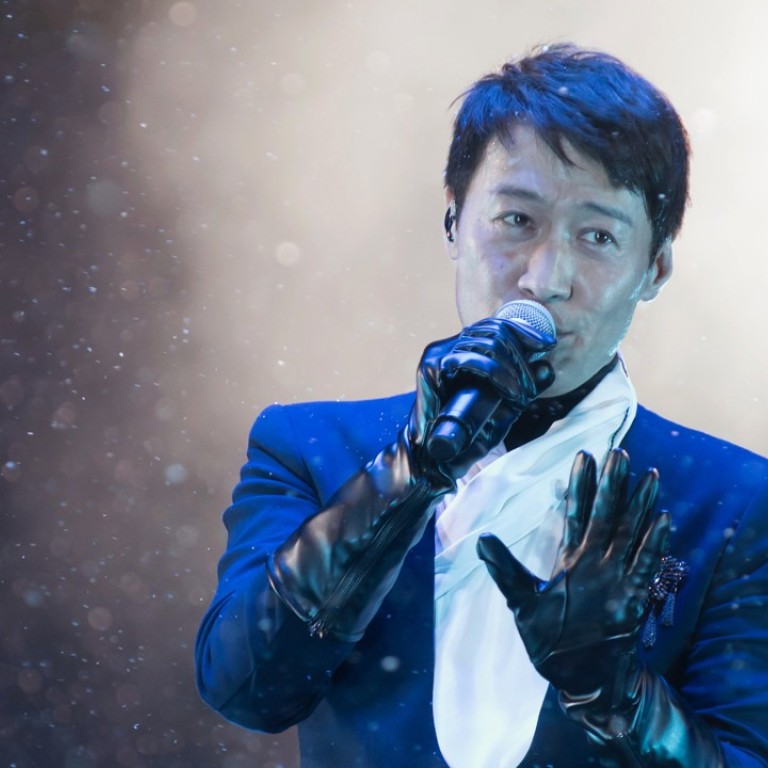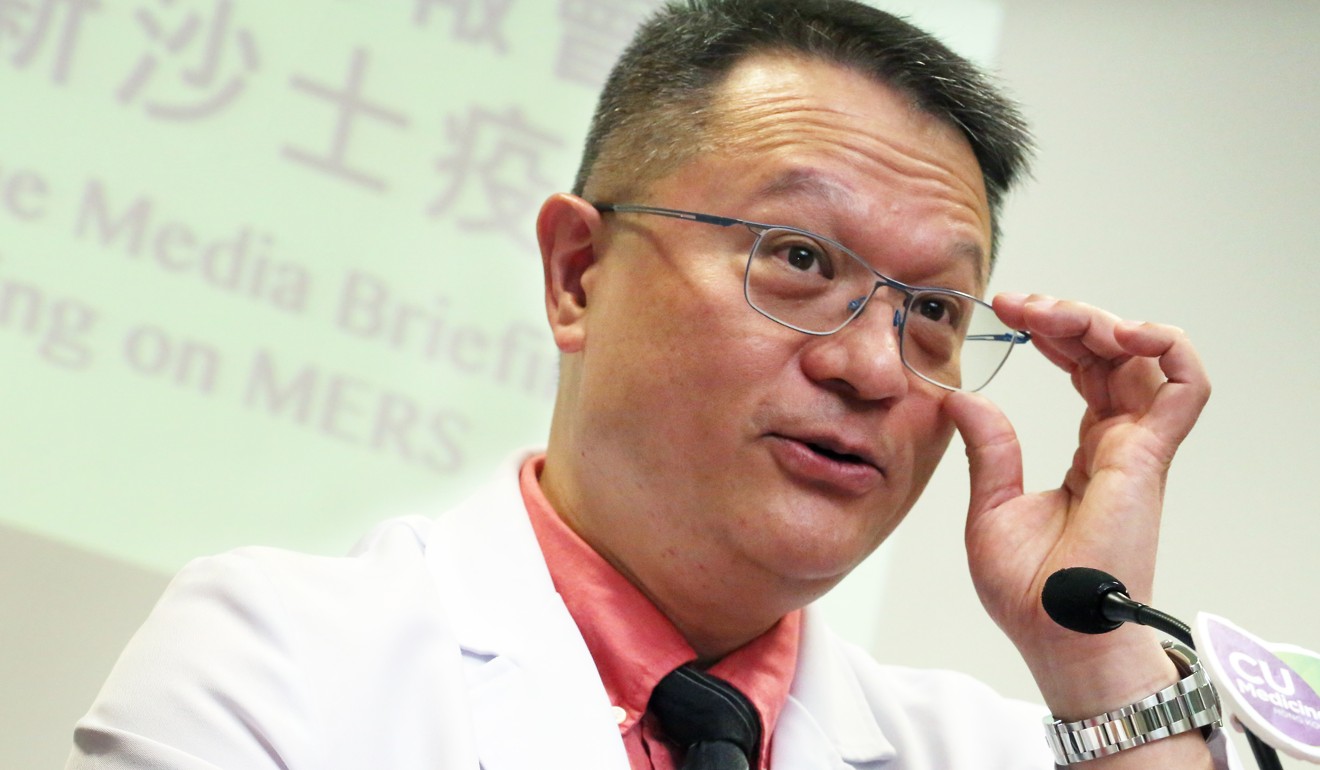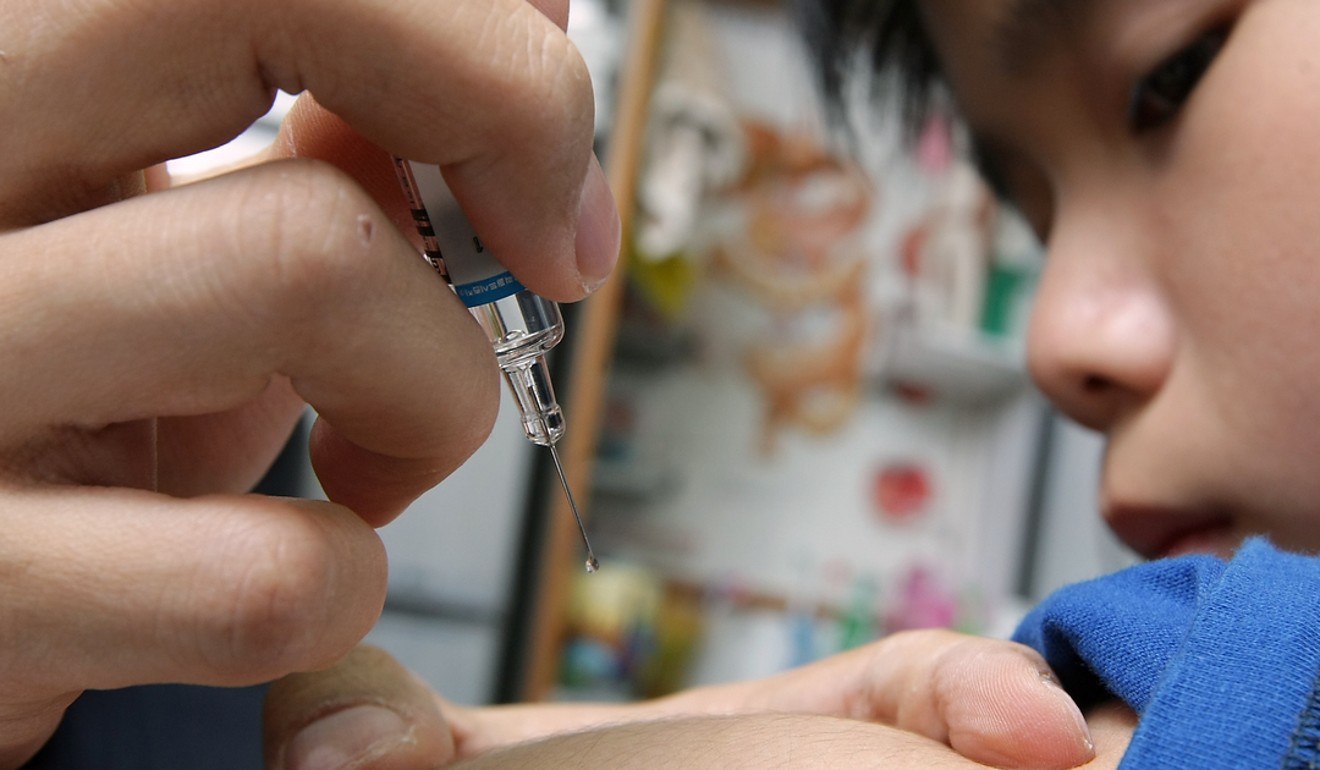
Experts insist flu vaccines are ‘66 per cent effective’ amid doubts cast by another Hong Kong celebrity Leon Lai
Facebook post by Canto-pop star stirs more concerns following earlier viral audio clip of singer Kay Tse voicing fears
More Hong Kong doctors and two pharmaceutical giants weighed in on the effectiveness of the current flu vaccine – estimated at 66 per cent by a team of researchers – as a second celebrity cast doubt on Friday.
In a Facebook post, Canto-pop singer Leon Lai Ming said “flu vaccines currently available in the market are very likely to be stocks from the previous season”.
“They are not flu vaccines targeting the new strain,” he claimed.

Concerns first surfaced when an audio recording by singer Kay Tse On-kei, who said the vaccines contained mutated bacteria and mercury, was widely circulated through instant messaging on Wednesday night.
Tse later said she was speaking to friends and never intended for the audio clip to go public. Her claims about the vaccines were immediately rejected as “totally wrong” by top microbiologist Professor Yuen Kwok-Yung.
Doubts about the vaccines were not reflected in demand spikes, however, leading to a citywide shortage amid the flu season.
Experts denounce Canto-pop star’s claim of harmful flu jabs as ‘totally wrong’ amid deadly virus outbreak in Hong Kong
But the debate prompted the release of study findings by a team of researchers from the University of Hong Kong. “I have never thought of speaking through the media,” Professor Gabriel Leung, dean of HKU’s medical school, said. “But a few things have happened recently.”
Researchers had studied the effectiveness of the vaccine type for the current flu season. Leung said it was time that the university, which had been conducting the study for the past nine years, publicised their findings.
Leung said there had been comments on social media, especially by well-known figures, which had led to many parents questioning the effectiveness of vaccines.
He said these comments had no support from the scientific and medical fields.
The university’s study looked into the data of 1,078 children who were admitted to hospitals between December 4 last year and January 31 this year. Information was collected from Queen Mary Hospital in Pok Fu Lam and Princess Margaret Hospital in Kwai Chung.

All the children suffered from fever and acute respiratory illness. Among the 339 confirmed with flu, only 22 had been vaccinated. Of the remaining 739 children who were unaffected by the virus, 103 had received seasonal flu vaccinations.
Based on the data, the researchers estimated the effectiveness of the flu vaccination to be 66 per cent.
Leung said the figure was “a very good and high number”.
“No vaccine or medicine in the world is 100 per cent effective,” Leung said. “[Sixty-six per cent] is already a very ideal number worldwide.”
What you need to know about this year’s unusual winter flu surge in Hong Kong
Separate from the study, Professor David Hui Shu-cheong, an expert in respiratory medicine from Chinese University, also reiterated the efficacy of the current vaccines.
“The quadrivalent vaccines we are using now could cover the ... influenza B virus, which is the dominant strain now,” Hui said. He was one of two experts Chief Executive Carrie Lam Cheng Yuet-ngor consulted before the Education Bureau announced the early closure of schools.
Hui said vaccines from the previous season had expired and had been destroyed.
GlaxoSmithKline (GSK), which provides flu vaccines, said in a statement on Friday: “GSK’s quadrivalent influenza vaccines are in single dose pre-filled syringes and do not contain mercuric compounds as preservative, and also do not contain aluminium.”
It added that its manufacturing processes were “strictly monitored and under stringent quality control to ensure that our vaccines meet the standards and requirements of the US Food and Drug Administration (FDA), European Medicines Agency (EMA) and the World Health Organisation (WHO)”.
Another supplier, Sanofi Pasteur, said on Friday that their flu vaccines also did not contain mercuric compounds and aluminium and that the virus strains in their vaccines “totally fit the recommendations of the WHO”.
The vaccine strains are similar to the circulating flu strains this winter, it said.
The Department of Health said it would continue to enhance education and awareness to increase the public’s understanding of flu vaccination and its safety.
While the flu vaccine shortage persisted in the city, Sanofi Pasteur said 20,000 more doses would be delivered to the city in mid-March, all of which would be given to the private medical sector.
GSK also said a batch of vaccines from Germany would be shipped to Hong Kong next week and delivered to public and private clinics after Lunar New Year.
From January 7 – the start of the flu season – until Thursday, 228 adults have been hit by severe flu and 130 of them have died. There were also two deaths among 13 children with severe flu.


